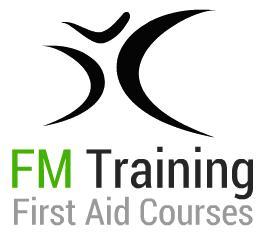What is Diabetes?
Diabetes is a condition where someone is unable to control the blood sugar (glucose) levels in their body. The body produces the hormone insulin which helps the body burn of sugars. If someone’s body has problems with insulin production, they will develop diabetes.
Recognising Diabetes
Often people do not know they have diabetes, and, because of this, their blood sugar can reach seriously high levels. If you are looking after someone who starts to develop weight loss, excessive urination, increased thirst and increased tiredness, these are the signs of hyperglycemia and you should immediately seek medical attention.
Signs and Symptoms of Hypoglycemia (Low Blood Sugar Levels)
- Confusion, drunken like behaviour
- May be aggressive
- They are pale, cold, shaky and sweaty
- Normal breathing
- Normal smelling breath
Treatment of Low Blood Sugar Levels
- Ensure that the casualty is sitting down.
- Give them a sugary drink or sugary sweets or even allow them to take their own glucose in the form of tablets or gel if they have any available on them. If this improves the situation, give them more drinks or food to sustain their blood sugar.
- Call 999/112 for an ambulance if their condition does not improve.
- If they become unresponsive, but are breathing normally, put them in the recovery position, and continue to monitor their airway and breathing.
- If they stop breathing, be prepared to commence CPR.
Signs and Symptoms of Hyperglycemia (High Blood Sugar Levels)
- Warm, dry skin
- Rapid Pulse and breathing
- Fruity, sweet smelling breath
- Tiredness
- Thirst
- Excessive urination
Treatment of High Blood Sugar Levels
- If you suspect hyperglycemia, call 999/112 for an ambulance immediately and mention that you suspect hyperglycemia.
- If they become unresponsive, but are breathing normally, put them in the recovery position, and continue to monitor their airway and breathing.
- If they stop breathing, be prepared to commence CPR.
It is important to remember that someone with diabetes (or any other illness) may be wearing a medical bracelet or a necklace to alert you of any conditions they may have. So, it’s always well worth looking out for these. In addition to this, they may also carry glucose gels or tablets or medication in the form of insulin injections or an insulin pump.
Interested in learning first aid?
Why not attend one of our Open First Aid Courses in High Wycombe that we run regularly.
We can also come in-house to your office or place of work at a date and time that suits your requirements to run a workplace first aid course.
Get in touch for more details.







